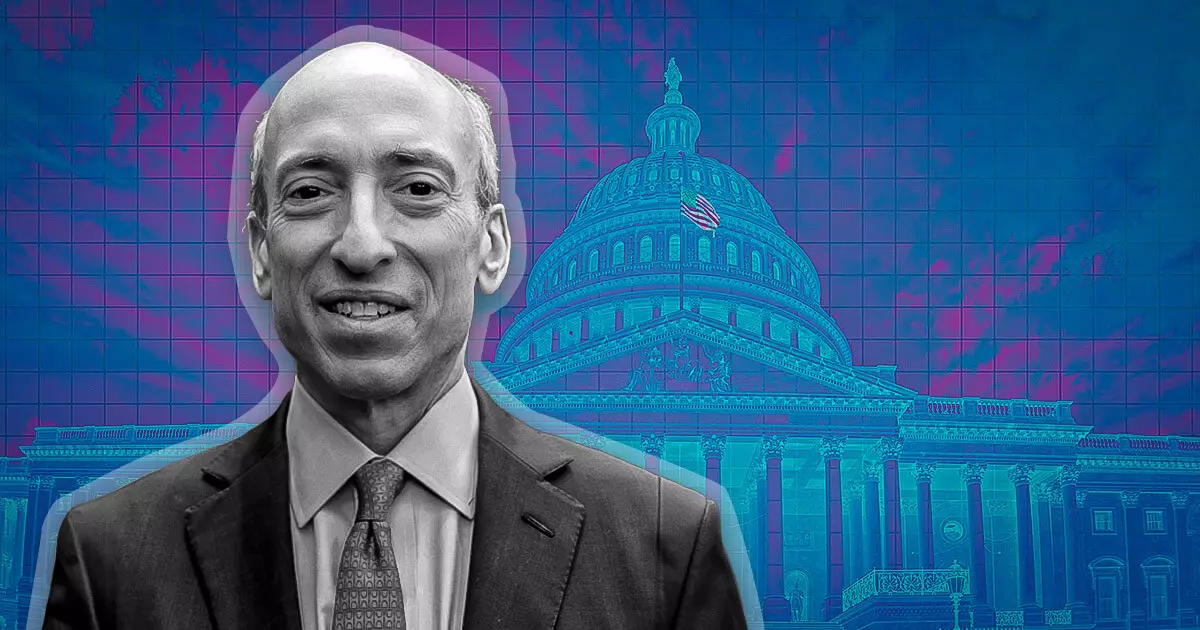The cryptocurrency landscape has been a hotbed of regulatory debate, especially under the leadership of the U.S. Securities and Exchange Commission (SEC) Chair, Gary Gensler. The recent outcry from Tyler Winklevoss, co-founder of the Gemini exchange, encapsulates a growing sentiment amid industry stakeholders regarding Gensler’s conduct and its implications. This article aims to analyze the gravity of the situation, illuminating the tension between regulatory authority and innovation within the digital asset sphere.
Tyler Winklevoss, a prominent figure in the crypto community, has publicly criticized Gensler’s approach to cryptocurrency regulation. In a pointed commentary, Winklevoss described Gensler’s actions not as mere blunders, but as deliberate maneuvers aimed at fulfilling a personal political agenda. This characterization reflects a broader frustration among crypto advocates who feel that Gensler’s regulatory framework may be stifling innovation and driving wealth and opportunity out of the United States.
The gravity of Winklevoss’s position becomes even more pronounced when he emphasizes that Gensler’s decisions have far-reaching consequences—potentially jeopardizing thousands of jobs and billions in capital. By framing Gensler’s policies as “evil,” Winklevoss starkly illustrates the perceived moral implications of regulatory decisions that can affect livelihoods and economic growth.
Winklevoss’s allegations present a formidable critique of the SEC’s regulatory philosophy, particularly its reliance on “regulation through enforcement.” This concept suggests that instead of providing clear guidelines for compliance, the SEC is focusing on punitive measures against alleged violators, leaving many in the crypto industry in a constant state of uncertainty. Industry advocates argue that such an approach undermines the trust and innovation that cryptocurrencies and blockchain technologies aim to foster.
Moreover, the assertion that Gensler’s actions have caused “irrevocable damage” raises critical questions about the future of the crypto market in America. Regulatory clarity is essential for fostering development in emerging technologies, and as companies grapple with ambiguous regulations, many are considering relocating to more hospitable regulatory environments. Winklevoss calls for a boycott of any institutions that might hire Gensler after his tenure at the SEC, highlighting the urgency for collective action against perceived injustices in regulatory practice.
Adding another layer of complexity to this narrative is the political backdrop involving former President Donald Trump’s potential return to office. His remarks about firing Gensler should he be re-elected illustrate a contentious overlap between regulatory agencies and political ambitions. While the SEC operates as an independent agency, this political conversation reverberates through Wall Street and the broader financial landscape, suggesting that regulatory appointments can be influenced by political agendas.
The SEC’s recent legal challenges, most notably the suit filed by 18 states alleging “gross government overreach,” speaks to a larger trend of discontent with the SEC’s current trajectory. Critics argue that the agency must balance its role as a protector of investors with the imperative to foster economic growth and innovation. As political and public scrutiny increases, the SEC finds itself at a crossroads.
This period represents a pivotal moment for the future of financial regulation in America, particularly concerning the burgeoning cryptocurrency market. As figures like Winklevoss rally against Gensler’s leadership, voices from various corners—including legal experts and industry leaders—are calling for introspection and reform within regulatory institutions. The clash between innovation and regulation is not new, but the rapid evolution of digital assets intensifies the stakes involved.
Ultimately, the challenges posed by Gensler’s leadership demand a robust discourse not solely focused on punitive action but instead fostering a dialogue on regulatory frameworks that accommodate innovation. The ongoing scrutiny of Gensler’s conduct and the potential consequences of political influences must prompt a reevaluation of how regulatory powers are exercised, ensuring that they serve the broader interests of innovation, economic opportunity, and consumer protection in an ever-evolving landscape.
As the crypto community reflects on the ramifications of recent actions taken by the SEC, the call for a more transparent, fair, and supportive regulatory approach is paramount. The future of the industry could hinge on the outcome of this critical juncture and the willingness of regulators to adapt to a new financial paradigm that embraces the potential of cryptocurrencies and blockchain technology.















